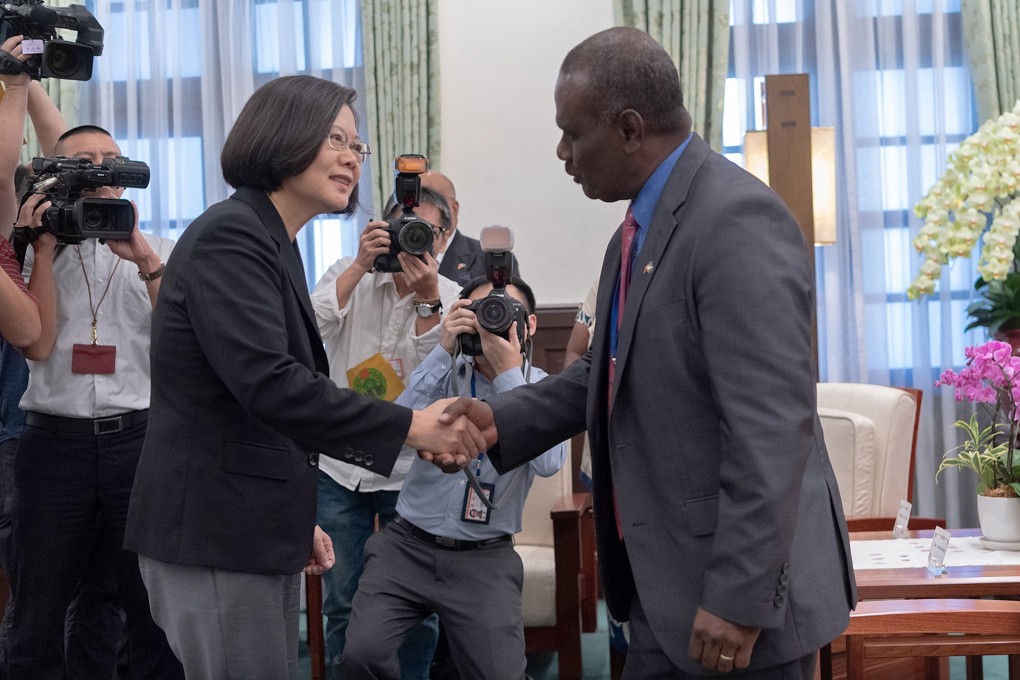Solomon Islands delegation holds off declaring any switch in diplomatic ties to Taiwan
- Taiwan urges ‘solid friend’ not to cut diplomatic recognition in favour of China
- Taiwanese President Tsai Ing-wen thanks Pacific nation for its past support and promises to improve relations

A high-level delegation from the Solomon Islands has stopped short of saying the Pacific state could switch its diplomatic recognition to China from Taiwan, keeping open the option amid media reports that it might end 36 years of official ties with Taipei.
Stressing that the Solomons have yet to come up with a final decision on the switch, a visiting delegation led by Minister of Foreign Affairs and External Trade Jeremiah Manele said at a news conference in Taipei on Monday that the Solomon Islands government was reviewing its foreign relations from a global perspective.
“My government was elected into office this year and has undertaken the commitment to review Solomon Islands foreign policy,” Manele said, adding that a national mechanism was in place to address the Solomons’ foreign relations.
The Solomon Islands are one of only 17 countries that still recognise Taiwan instead of China. News reports said last week that the Pacific island nation might switch its recognition to mainland China after a ministerial delegation visited Beijing to discuss the issue.
The Solomons said on Friday that “no decision” had been made to cut ties with Taipei in favour of Beijing.
“The review is a broader one, and we have looked at our global posture, reviewing all our overseas missions and relations,” said Manele, who arrived in Taipei on Monday at the start of a five-day visit.